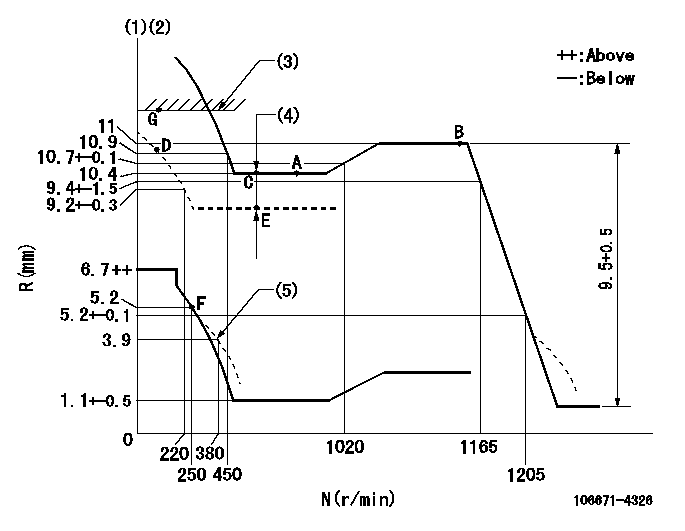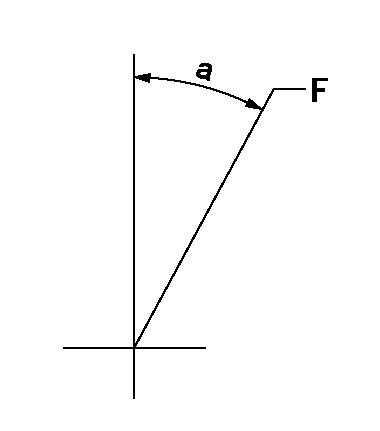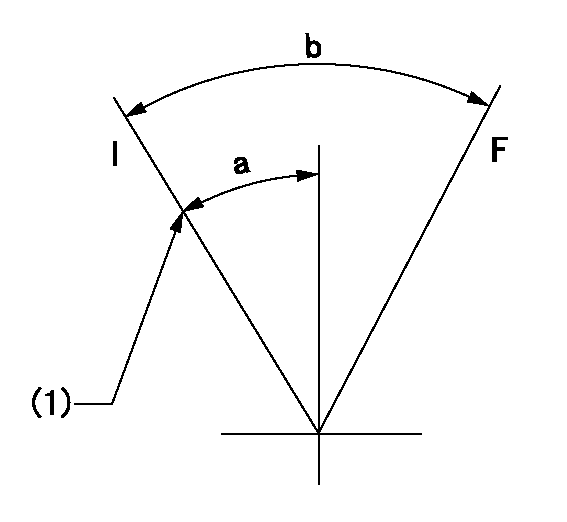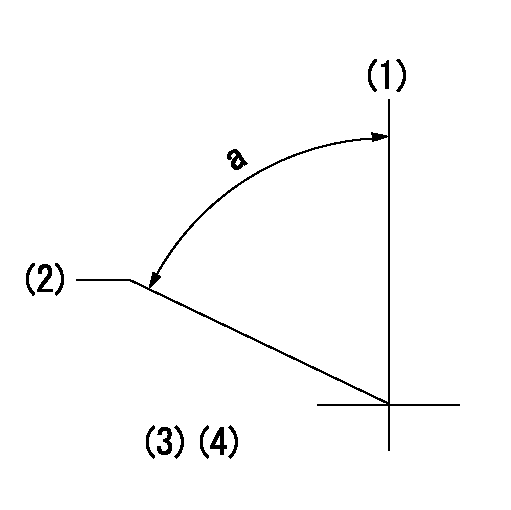Information injection-pump assembly
BOSCH
9 400 616 801
9400616801
ZEXEL
106671-4326
1066714326
DAEWOO
65111017237
65111017237

Rating:
Service parts 106671-4326 INJECTION-PUMP ASSEMBLY:
1.
_
7.
COUPLING PLATE
8.
_
9.
_
10.
NOZZLE AND HOLDER ASSY
11.
Nozzle and Holder
12.
Open Pre:MPa(Kqf/cm2)
13.
NOZZLE-HOLDER
14.
NOZZLE
15.
NOZZLE SET
Include in #1:
106671-4326
as INJECTION-PUMP ASSEMBLY
Cross reference number
BOSCH
9 400 616 801
9400616801
ZEXEL
106671-4326
1066714326
DAEWOO
65111017237
65111017237
Zexel num
Bosch num
Firm num
Name
106671-4326
9 400 616 801
65111017237 DAEWOO
INJECTION-PUMP ASSEMBLY
D2366T * K
D2366T * K
Calibration Data:
Adjustment conditions
Test oil
1404 Test oil ISO4113 or {SAEJ967d}
1404 Test oil ISO4113 or {SAEJ967d}
Test oil temperature
degC
40
40
45
Nozzle and nozzle holder
105780-8140
Bosch type code
EF8511/9A
Nozzle
105780-0000
Bosch type code
DN12SD12T
Nozzle holder
105780-2080
Bosch type code
EF8511/9
Opening pressure
MPa
17.2
Opening pressure
kgf/cm2
175
Injection pipe
Outer diameter - inner diameter - length (mm) mm 8-3-600
Outer diameter - inner diameter - length (mm) mm 8-3-600
Overflow valve
131424-4420
Overflow valve opening pressure
kPa
157
123
191
Overflow valve opening pressure
kgf/cm2
1.6
1.25
1.95
Tester oil delivery pressure
kPa
157
157
157
Tester oil delivery pressure
kgf/cm2
1.6
1.6
1.6
Direction of rotation (viewed from drive side)
Right R
Right R
Injection timing adjustment
Direction of rotation (viewed from drive side)
Right R
Right R
Injection order
1-5-3-6-
2-4
Pre-stroke
mm
4.7
4.65
4.75
Beginning of injection position
Drive side NO.1
Drive side NO.1
Difference between angles 1
Cal 1-5 deg. 60 59.5 60.5
Cal 1-5 deg. 60 59.5 60.5
Difference between angles 2
Cal 1-3 deg. 120 119.5 120.5
Cal 1-3 deg. 120 119.5 120.5
Difference between angles 3
Cal 1-6 deg. 180 179.5 180.5
Cal 1-6 deg. 180 179.5 180.5
Difference between angles 4
Cyl.1-2 deg. 240 239.5 240.5
Cyl.1-2 deg. 240 239.5 240.5
Difference between angles 5
Cal 1-4 deg. 300 299.5 300.5
Cal 1-4 deg. 300 299.5 300.5
Injection quantity adjustment
Adjusting point
A
Rack position
10.4
Pump speed
r/min
700
700
700
Average injection quantity
mm3/st.
148
146
150
Max. variation between cylinders
%
0
-2
2
Basic
*
Fixing the lever
*
Boost pressure
kPa
56
56
Boost pressure
mmHg
420
420
Injection quantity adjustment_02
Adjusting point
B
Rack position
11
Pump speed
r/min
1100
1100
1100
Average injection quantity
mm3/st.
154.5
151.5
157.5
Max. variation between cylinders
%
0
-3
3
Fixing the lever
*
Boost pressure
kPa
56
56
Boost pressure
mmHg
420
420
Injection quantity adjustment_03
Adjusting point
F
Rack position
5.2+-0.5
Pump speed
r/min
250
250
250
Average injection quantity
mm3/st.
14.5
13
16
Max. variation between cylinders
%
0
-15
15
Fixing the rack
*
Boost pressure
kPa
0
0
0
Boost pressure
mmHg
0
0
0
Injection quantity adjustment_04
Adjusting point
G
Rack position
-
Pump speed
r/min
100
100
100
Average injection quantity
mm3/st.
165
160
170
Fixing the lever
*
Boost pressure
kPa
56
56
Boost pressure
mmHg
420
420
Rack limit
*
Boost compensator adjustment
Pump speed
r/min
500
500
500
Rack position
8.7
Boost pressure
kPa
22.7
20.7
24.7
Boost pressure
mmHg
170
155
185
Boost compensator adjustment_02
Pump speed
r/min
500
500
500
Rack position
10.4
Boost pressure
kPa
42.7
42.7
42.7
Boost pressure
mmHg
320
320
320
Timer adjustment
Pump speed
r/min
900--
Advance angle
deg.
0
0
0
Remarks
Start
Start
Timer adjustment_02
Pump speed
r/min
850
Advance angle
deg.
0.5
Timer adjustment_03
Pump speed
r/min
1100
Advance angle
deg.
3
2.5
3.5
Remarks
Finish
Finish
Test data Ex:
Governor adjustment

N:Pump speed
R:Rack position (mm)
(1)Tolerance for racks not indicated: +-0.05mm.
(2)Microswitch adjustment unnecessary.
(3)RACK LIMIT
(4)Boost compensator stroke: BCL
(5)Damper spring setting
----------
BCL=1.7+-0.1mm
----------
----------
BCL=1.7+-0.1mm
----------
Speed control lever angle

F:Full speed
----------
----------
a=7deg+-5deg
----------
----------
a=7deg+-5deg
0000000901

F:Full load
I:Idle
(1)Stopper bolt setting
----------
----------
a=10deg+-5deg b=34deg+-3deg
----------
----------
a=10deg+-5deg b=34deg+-3deg
Stop lever angle

N:Pump normal
S:Stop the pump.
----------
----------
a=40deg+-5deg b=73deg+-5deg
----------
----------
a=40deg+-5deg b=73deg+-5deg
Timing setting

(1)Pump vertical direction
(2)Coupling's key groove position for the No. 6 cylinder's beginning of injection
(3)-
(4)-
----------
----------
a=(70deg)
----------
----------
a=(70deg)
Information:
Engine Performance
Poor vessel performance is traditionally believed to be the result of a lack (or loss) of engine performance, when in fact the engine is only one of numerous factors that influence the overall performance of a vessel.Several factors determine the power demand on an engine. The engine has no control over the demand made upon it by the vessel design, such as hull, prop and driveline design. These same factors also affect the amount of power available to perform additional work such as to drive auxiliary pumps.If you feel you have a vessel performance problem, first consider the impact of vessel design, loads, propeller and driveline condition, etc. on power demand.Deterioration of vessel systems (cooling, air inlet and exhaust, fuel tanks, etc.) can only lessen the engine's chance to produce power and vessel speed. In the case of poor fuel economy, the engine is not likely to be the cause without the presence of excessive exhaust smoke and/or a significant loss of power.If you feel you have a valid engine performance problem, contact an authorized Caterpillar marine engine servicing dealer for assistance.If your engine is under warranty then the Caterpillar warranty will cover the cost of resolving a valid engine performance deficiency. However, if the engine is not found at fault, all costs incurred will be the responsibility of the owner. Adjustment of the fuel system outside Caterpillar specified limits will not improve fuel efficiency and could result in damage to the engine.Your Caterpillar dealer can determine engine condition and check the engine's external systems using a diagnostic procedure called the Marine Engine "Performance Analysis Report" (PAR).Caterpillar engines are designed and manufactured using state-of-the-art technology to provide maximum fuel efficiency and performance in all applications. To insure optimum performance for the life of your engine, follow the recommended operation and preventive maintenance procedures described in this publication.Marine Engine Performance Analysis Report (PAR)
Today's marine operator is concerned with performance, cost of operation and satisfactory engine service life. Traditionally, vessel performance has been directly related to the propulsion engine, when in fact the engine is only one of numerous factors influencing the propulsion system.To verify the condition of the propulsion system, Caterpillar has developed the Marine Engine Performance Analysis Report (PAR) program.Marine Engine PAR is an in-vessel test procedure, performed and evaluated by Caterpillar certified Marine Analysts under normal or bollard operating conditions, comparing the performance of all marine engine systems to original factory test cell specifications.When Marine Engine PAR testing is conducted at Sea Trial, it can assure you of a quality installation, confirming that the hull, rudders, propeller, marine transmission, ventilation and cooling systems are all properly matched for optimum performance and fuel efficiency.Caterpillar additionally recommends regularly scheduled (see Maintenance Schedule) Marine Engine PAR analyses in order to maintain optimum performance.Periodic PARs can define propulsion system deterioration and aid in fine tuning the maintenance, repair and overhaul schedules, which will provide the most economical and efficient cost of operation.
Poor vessel performance is traditionally believed to be the result of a lack (or loss) of engine performance, when in fact the engine is only one of numerous factors that influence the overall performance of a vessel.Several factors determine the power demand on an engine. The engine has no control over the demand made upon it by the vessel design, such as hull, prop and driveline design. These same factors also affect the amount of power available to perform additional work such as to drive auxiliary pumps.If you feel you have a vessel performance problem, first consider the impact of vessel design, loads, propeller and driveline condition, etc. on power demand.Deterioration of vessel systems (cooling, air inlet and exhaust, fuel tanks, etc.) can only lessen the engine's chance to produce power and vessel speed. In the case of poor fuel economy, the engine is not likely to be the cause without the presence of excessive exhaust smoke and/or a significant loss of power.If you feel you have a valid engine performance problem, contact an authorized Caterpillar marine engine servicing dealer for assistance.If your engine is under warranty then the Caterpillar warranty will cover the cost of resolving a valid engine performance deficiency. However, if the engine is not found at fault, all costs incurred will be the responsibility of the owner. Adjustment of the fuel system outside Caterpillar specified limits will not improve fuel efficiency and could result in damage to the engine.Your Caterpillar dealer can determine engine condition and check the engine's external systems using a diagnostic procedure called the Marine Engine "Performance Analysis Report" (PAR).Caterpillar engines are designed and manufactured using state-of-the-art technology to provide maximum fuel efficiency and performance in all applications. To insure optimum performance for the life of your engine, follow the recommended operation and preventive maintenance procedures described in this publication.Marine Engine Performance Analysis Report (PAR)
Today's marine operator is concerned with performance, cost of operation and satisfactory engine service life. Traditionally, vessel performance has been directly related to the propulsion engine, when in fact the engine is only one of numerous factors influencing the propulsion system.To verify the condition of the propulsion system, Caterpillar has developed the Marine Engine Performance Analysis Report (PAR) program.Marine Engine PAR is an in-vessel test procedure, performed and evaluated by Caterpillar certified Marine Analysts under normal or bollard operating conditions, comparing the performance of all marine engine systems to original factory test cell specifications.When Marine Engine PAR testing is conducted at Sea Trial, it can assure you of a quality installation, confirming that the hull, rudders, propeller, marine transmission, ventilation and cooling systems are all properly matched for optimum performance and fuel efficiency.Caterpillar additionally recommends regularly scheduled (see Maintenance Schedule) Marine Engine PAR analyses in order to maintain optimum performance.Periodic PARs can define propulsion system deterioration and aid in fine tuning the maintenance, repair and overhaul schedules, which will provide the most economical and efficient cost of operation.
Have questions with 106671-4326?
Group cross 106671-4326 ZEXEL
Daewoo
Daewoo
106671-4326
9 400 616 801
65111017237
INJECTION-PUMP ASSEMBLY
D2366T
D2366T